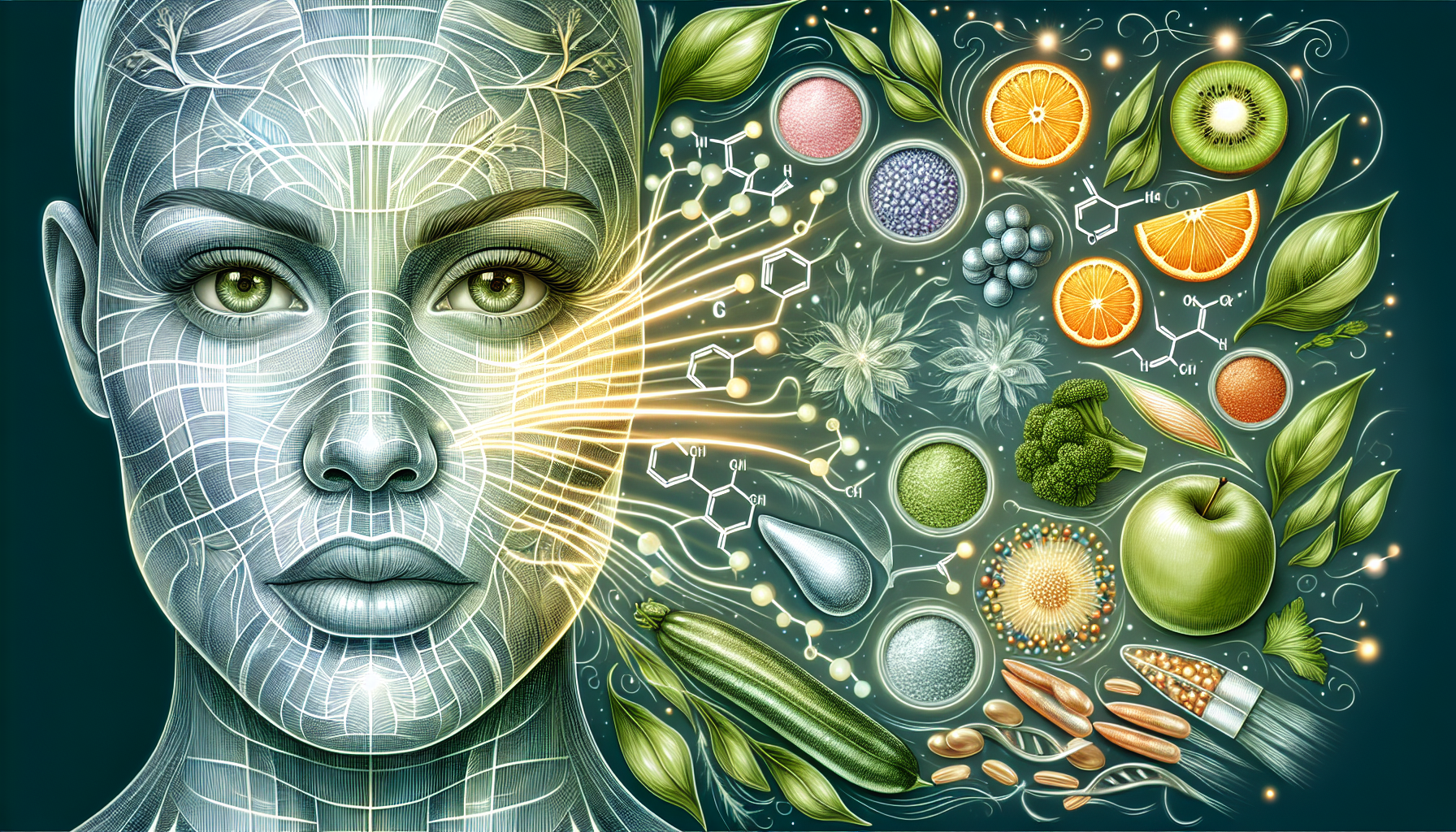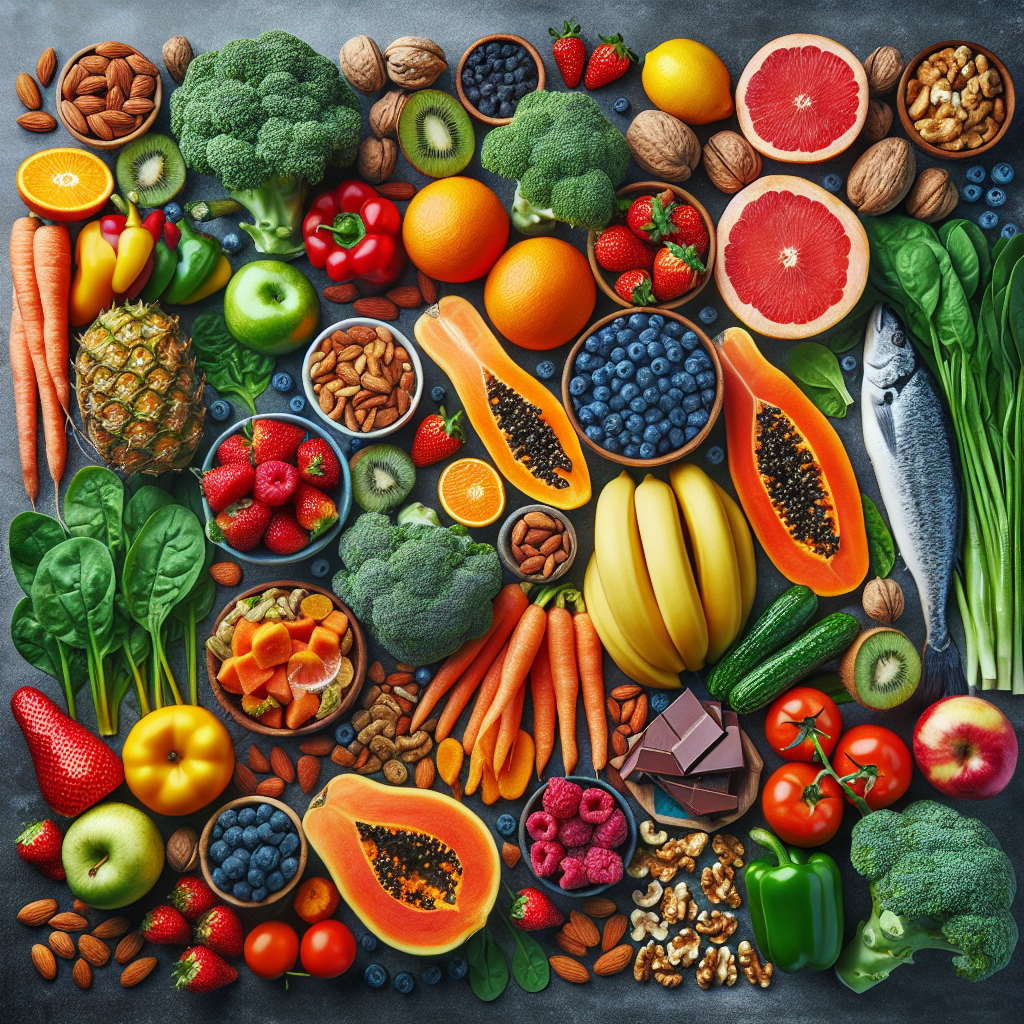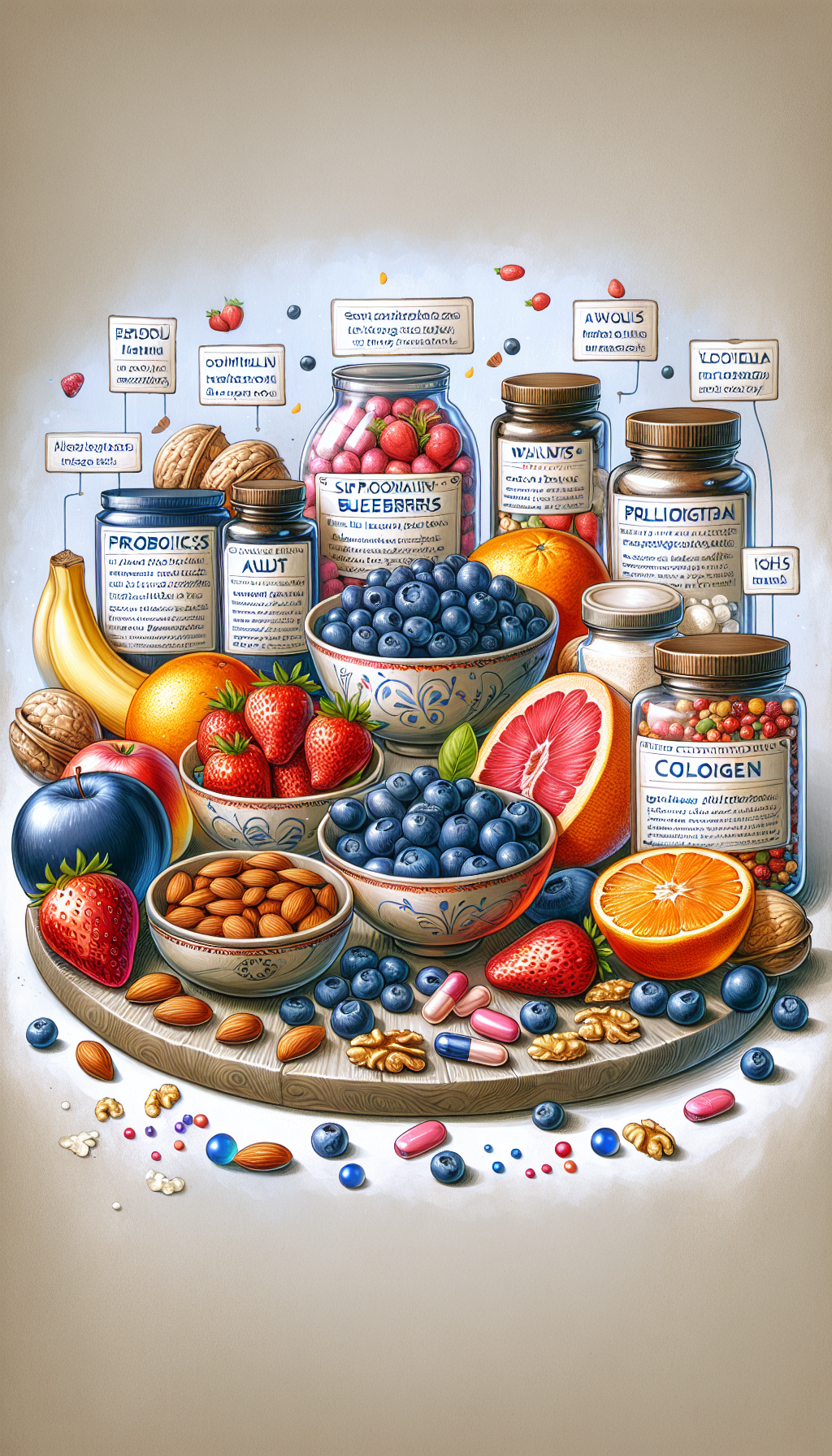The skin, our body’s largest organ, is a reflection of our overall well-being. Its health is influenced by a myriad of factors, from environmental influences to the nutrients we consume. In an era where skin care is synonymous with health care, understanding the essential nutrients that foster healthy skin function is paramount. This article delves into the science of skin nutrition, highlighting the vital components necessary for maintaining skin vitality and resilience.
The Role of Nutrition in Skin Health
Nutrition plays a critical role in the health of our skin. The adage "you are what you eat" holds particularly true when it comes to skin care. Nutrients from our diet contribute to the skin’s ability to repair itself, remain elastic, and fight off potential damage from UV rays and pollution. For comprehensive skin health support, consider exploring the intersection of diet and skin health.
Vitamins and Antioxidants
Vitamins A, C, E, and D, along with antioxidants, are the cornerstones of skin health. Vitamin A, found in sweet potatoes, carrots, and dark leafy greens, is critical for skin cell production and repair. It helps to combat acne and reduces lines and wrinkles, making it an indispensable nutrient for aging skin.
Vitamin C, abundant in citrus fruits, strawberries, and bell peppers, not only boosts the immune system but also plays a crucial role in collagen production. Maximizing collagen production through diet supports skin elasticity and firmness.
Vitamin E, present in nuts, seeds, and green leafy vegetables, serves as a powerful antioxidant, protecting the skin from oxidative stress. This oxidative stress can lead to premature aging and skin cancer, emphasizing the importance of incorporating vitamin E-rich foods into your diet.
The "sunshine vitamin," Vitamin D, is synthesized by the skin upon exposure to sunlight. However, with increasing concerns about skin cancer and photoaging, finding dietary sources or supplements of Vitamin D is crucial for those limiting sun exposure. The benefits of Vitamin D for skin health are multi-faceted, including its role in skin cell growth and repair.
Antioxidants, such as beta-carotene and lycopene, protect the skin by limiting the production of free radicals, which can damage skin cells. Brightly colored fruits and vegetables like tomatoes, watermelon, and guava are excellent sources of these antioxidants.
Essential Fatty Acids
Essential fatty acids (EFAs), particularly omega-3 and omega-6 fatty acids, are necessary for maintaining the skin’s lipid barrier. This barrier is crucial for hydration retention and protection against harmful substances. Flaxseeds, walnuts, and fatty fish like salmon are rich in omega-3s, while omega-6s can be found in seeds and nuts. Ensuring a balanced intake of these EFAs can aid in the management of skin hydration and overall skin health.
Proteins and Amino Acids
Collagen and elastin, two proteins that provide structure and elasticity to the skin, are built from amino acids derived from dietary protein. Consuming a variety of protein sources, such as lean meats, legumes, and dairy products, supplies the amino acids necessary for the synthesis of these vital proteins.
Hydration and Skin Health
Hydration is another fundamental aspect of skin health. Water is essential for the proper functioning of every cell, including skin cells. It aids in nutrient transport, waste removal, and the maintenance of proper temperature. Dehydration can lead to dry, flaky skin, emphasizing the importance of regular water intake for a radiant complexion.
External Factors Affecting Skin Nutrient Absorption
While diet is crucial, external factors like skincare routines and environmental stressors can impact the skin’s ability to absorb and utilize nutrients. For example, over-washing or using harsh cleansers can strip the skin of its natural oils, impairing barrier function. Conversely, incorporating topical antioxidants, such as serums containing vitamins C and E, can provide an additional layer of protection against environmental damage.
Advanced Nutritional Insights and Practices
For those seeking to enhance their skin health through advanced nutritional practices, exploring the role of probiotics, prebiotics, and adaptogens can be beneficial. Probiotics and prebiotics support gut health, which is intricately connected to skin health. Adaptogens, such as ashwagandha and holy basil, can help the body manage stress, which often manifests in skin conditions like acne and eczema.
External Resources for Further Understanding
- Explore the link between EFAs and skin barrier function through in-depth research articles on specialized databases like PubMed.
- Investigate the American Academy of Dermatology’s resources for insights into the impact of diet on skin health.
- Refer to clinical trials and studies found on the National Institutes of Health’s website for evidence-based information on the effects of vitamins and minerals on skin health.
Conclusion
Healthy skin is a reflection of overall wellness and is deeply influenced by the nutrients we ingest. It’s not only about what we apply topically; it’s equally about what we consume. By incorporating a variety of essential nutrients into our diets, staying hydrated, and considering external factors, we can support our skin’s health from the inside out. This holistic approach to skin care ensures that our skin can perform its functions efficiently, remain resilient against environmental challenges, and retain its youthful vibrancy for years to come.
To continue exploring the connection between diet and skin health, or to dive deeper into the topics of hydration, collagen production, and vitamin D benefits, visit the comprehensive guides and articles available at Avix Health. Remember, beautiful skin starts with the nutrients on your plate.



